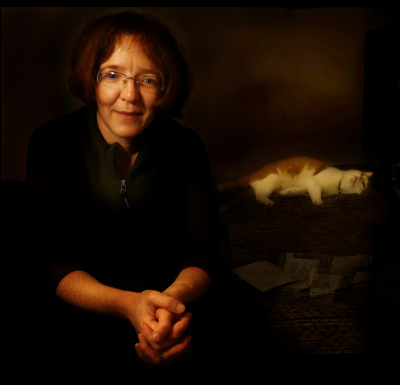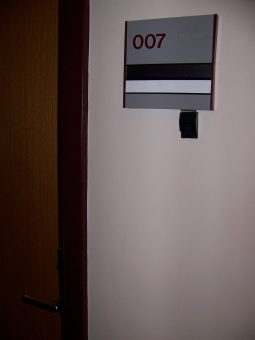Should You Date a Mathematician?
The book How to Drive Your Man Wild in Bed by Graham Masterton has a chapter on how to choose a lover. It highlights red flags for men who need to be approached with caution. There is a whole list of potentially bad signs, including neglecting to shower in the previous week and talking only about himself.
The list of bad features also includes professions to avoid. Can you guess the first profession on the list? OK, I think you should be able to meta-guess given the fact that I am writing about it. Indeed, the list on page 64 starts:
Avoid, on the whole, mathematicians…
I am an expert on NOT avoiding mathematicians: in fact, I’ve married three of them and dated x number of them. That isn’t necessarily because I like mathematicians so much; I just do not meet anyone else.
When I was a student I had a theory that mathematicians are different from physicists. My theory was based on two conferences on mathematical physics I attended in a row. The first one was targeted for mathematicians and the second for physicists. The first one was very quiet, and the second one was all boozing and partying. So I decided that mathematicians are introverts and physicists are extroverts. I was sure then that my second husband chose a wrong field, because he liked booze and parties.
By now, years later, I’ve met many more mathematicians, and I have to tell you that they are varied. It is impossible and unfair to describe mathematicians as a type. One mathematician even became the star of an erotic movie. I write this essay for girls who are interested in dating mathematicians. I am not talking about math majors here, I am talking about mathematicians who do serious research. Do I have a word of advice?
I do have several words of caution. While they don’t apply to all mathematicians, it’s worth keeping them in mind.
First, there are many mathematicians who, like my first husband, are very devoted to mathematics. I admire that devotion, but it means that they plan to do mathematics on Saturday nights and prefer to spend vacation at their desks. If they can only fit in one music concert per year, it is not enough for me. Of course, this applies to anyone who is obsessed by his work.
Second, there are mathematicians who believe that they are very smart. Smarter than many other people. They expand their credibility in math to other fields. They start going into biology, politics and relationships with the charisma of an expert, when in fact they do not have a clue what they are talking about.
Third, there are mathematicians who enjoy their math world so much that they do not see much else around them. The jokes are made about this type of mathematician:
What is the difference between an extroverted mathematician and an introverted one? The extroverted one looks at your shoes, rather than at his own shoes.
Yes, I have met a lot of mathematicians like that. Do you think that their wives complain that their husbands do not notice their new haircuts? No. Such triviality is not worth mentioning. Their wives complain that their husbands didn’t notice that the furniture was repossessed or that their old cat died and was replaced by a dog. My third husband was like that. At some point in my marriage I discovered that he didn’t know the color of my eyes. He didn’t know the color of his eyes either. He wasn’t color-blind: he was just indifferent. I asked him as a personal favor to learn the color of my eyes by heart and he did. My friend Irene even suggested creating a support group for the wives of such mathematicians.
While you need to watch out for those traits, there are also things I like about mathematicians. Many mathematicians are indeed very smart. That means it is interesting to talk to them. Also, I like when people are driven by something, for it shows a capacity for passion.
Mathematicians are often open and direct. Many mathematicians, like me, have trouble making false statements. I stopped playing —Mafia— because of that. I prefer people who say what they think and do not hold back.
There is a certain innocence among some mathematicians, and that reminds me of the words of the Mozart character in Pushkin’s poetic drama, Mozart and Salieri: —And genius and villainy are two things incompatible, aren’t they?— I feel this relates to mathematicians as well. Many mathematicians are so busy understanding mathematics, they are not interested in plotting and playing games.
Would I ever date a mathematician again? Yes, I would.
Share: My friend
My friend  For the last three years I’ve been coming to the Institute for Advanced Study in Princeton every spring for the Women and Mathematics program. Every year I am assigned to an office in the main building: Fuld Hall.
For the last three years I’ve been coming to the Institute for Advanced Study in Princeton every spring for the Women and Mathematics program. Every year I am assigned to an office in the main building: Fuld Hall.